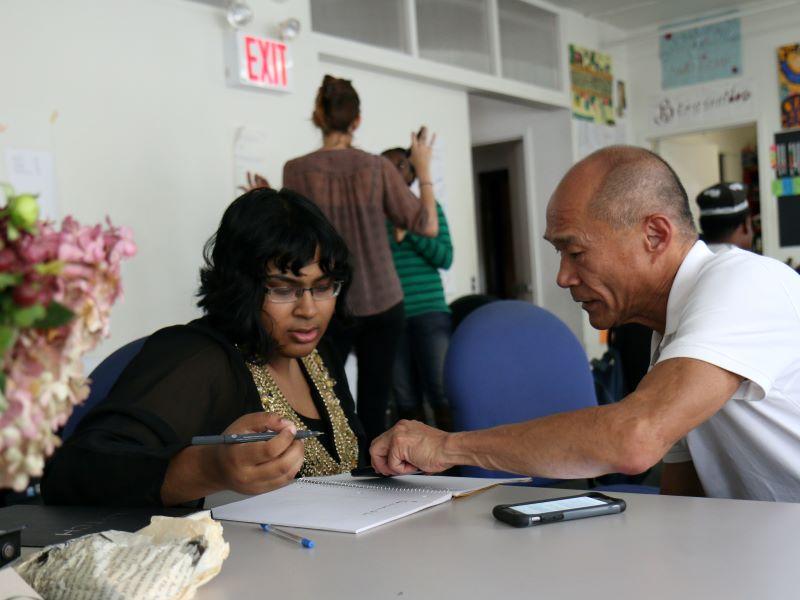
Lifelong learning needs a reboot – here’s how to do it

Once you’ve immersed yourself in a career, you begin to hear how important “lifelong learning” is for any serious professional. When you look for ways to acquire that learning, however, what you find might disappoint you: instead of purposeful, structured training, there is a jumble of resources. A million seminars, books and online courses vie for your attention (and your money), none of them connected to the others and none of them created with a larger design in mind. This failure of the lifelong learning industry has unpleasant implications for the future of our skilled workforce and, by extension, our society.
Even the term “lifelong learning” has lost its meaning. It has come to imply that learning, in itself, somehow helps people meet the demands of their careers. What professionals actually need is focused, preparatory, applied learning, collected in one place and organised so they can choose the lessons that will benefit them most and block out all the distractions. But this is not what is available. The lifelong learning support system is fragmented, confusing and incoherent, leaving users without a fixed point to reach or a route to reach it.
- Now is the time to design a system in which all learning counts
- Universities need to prepare for the mature student onslaught
- Pivoting university course offerings to upskill the workforce
Continuing education and the skilled workforce
As advancements in technology, and the downstream effects, stack on each other and possibly increase the rate of further advancement, adaptations in professional fields must keep pace. What was cutting edge yesterday may be obsolete today. Skills that were irrelevant yesterday may now be indispensable. The modern professional world demands regularly rejuvenated knowledge. And with most continuing education tools being so aimless, so disconnected, many learners may believe no answer for this demand exists.
We are seeing the consequences of this problem already. In healthcare, workers do not believe they have the necessary skills for the jobs they do, with data analytics standing out as an area of deficiency. Healthcare professionals feel overwhelmed by the amount of information they have to collate and synthesise, and they’re not sure where to turn for help. This is in no way a sign of declining interest in the field, either: the number of first-year students in US medical schools increased 1.7 per cent in the 2020 academic year, according to data from the Association of American Medical Colleges. If the lifelong learning industry cannot support workers in a growing, lucrative sector that deals with perhaps the highest professional priority, public health, what hope is there in other fields?
What lifelong learners need
Lifelong learning needs a transformation. Instead of having to seek out and untangle a miscellany of education products after getting their degrees, learners should feel that the structure and purpose of their college programmes continues into their professional life. There should be connective tissue running through the body of study material available to them.
From the moment someone decides to become a doctor, for example, they should have access to resources that will train them in a focused, step-by-step manner for the next phase of their development, all the way to the end of their career. We do not force first-year med school students to devise and implement their own curricula from scratch, and we should not do that to practising physicians – or to professionals in other fields. Don’t we want these people to remain focused on work, rather than on sifting through continuing education products?
Along with giving lifelong learning resources structure and making sure they apply to the day-to-day functions of users, I see three improvements that can be made:
1. Personalisation
Skilled professionals need education suited to their individual needs. A one-size-fits-all model cannot provide the technical detail or efficiency that personalised lifelong learning can. To fine-tune coursework for maximum benefit, lifelong learning companies must first have deep insight into the professions they’re teaching.
For example, Blueprint Prep, where I work, offers medical courses that are built around the five-stage progression students and professionals will complete as they go from med school all the way to recertification. Within those five stages are further divisions that help users customise their experience depending on the particular exam or milestone they are approaching in their careers. In general, the lifelong learning industry must match its materials better to its users’ career paths, sparing them the chore of filtering extraneous information.
2. Technology
The materials provided to lifelong learners should be integrated with the technology of the moment. This not only gives users content in forms they find familiar, convenient and trustworthy, but also adds to the customisation that is possible. Personalised study calendars relieve uncertainty and help keep users on track to meet their career demands. Video Q&As cover material quickly and may aid retention. Advanced analytics can help users spot weaknesses in their skill set more quickly, steering them straight to the material they need most. Continuing ed providers should make sure not to let the benefits that learning technology offers go to waste.
3. Fun!
People learn best when they’re enjoying themselves. Offering captivating, exciting content that takes advantage of this phenomenon should be as much a priority for creators as the content is.
There are any number of ways to achieve this goal, including gamification, using creative video production techniques and, perhaps most importantly, engaging top-quality educators to lead lessons, because they can explain technical concepts and skills in ways users find engaging and memorable.
The lifelong learning system is broken, for now, but there is a solution. If we adopt a mindset that encourages lifelong professional preparation – focused, applied knowledge that gives our workforce a chance to keep up with disruptions in their industries – we can create a system that truly supports learners from the beginning of their journey to the end, and we will all reap the rewards.
Matt Riley is co-founder and CEO at Blueprint Prep, offering lifelong professional prep for students and professionals in the medical and legal industries. He has also had roles in the classroom teaching pre-law preparation, law school admissions and how to succeed in law school.
If you found this interesting and want advice and insight from academics and university staff delivered direct to your inbox each week, sign up for the THE Campus newsletter.


